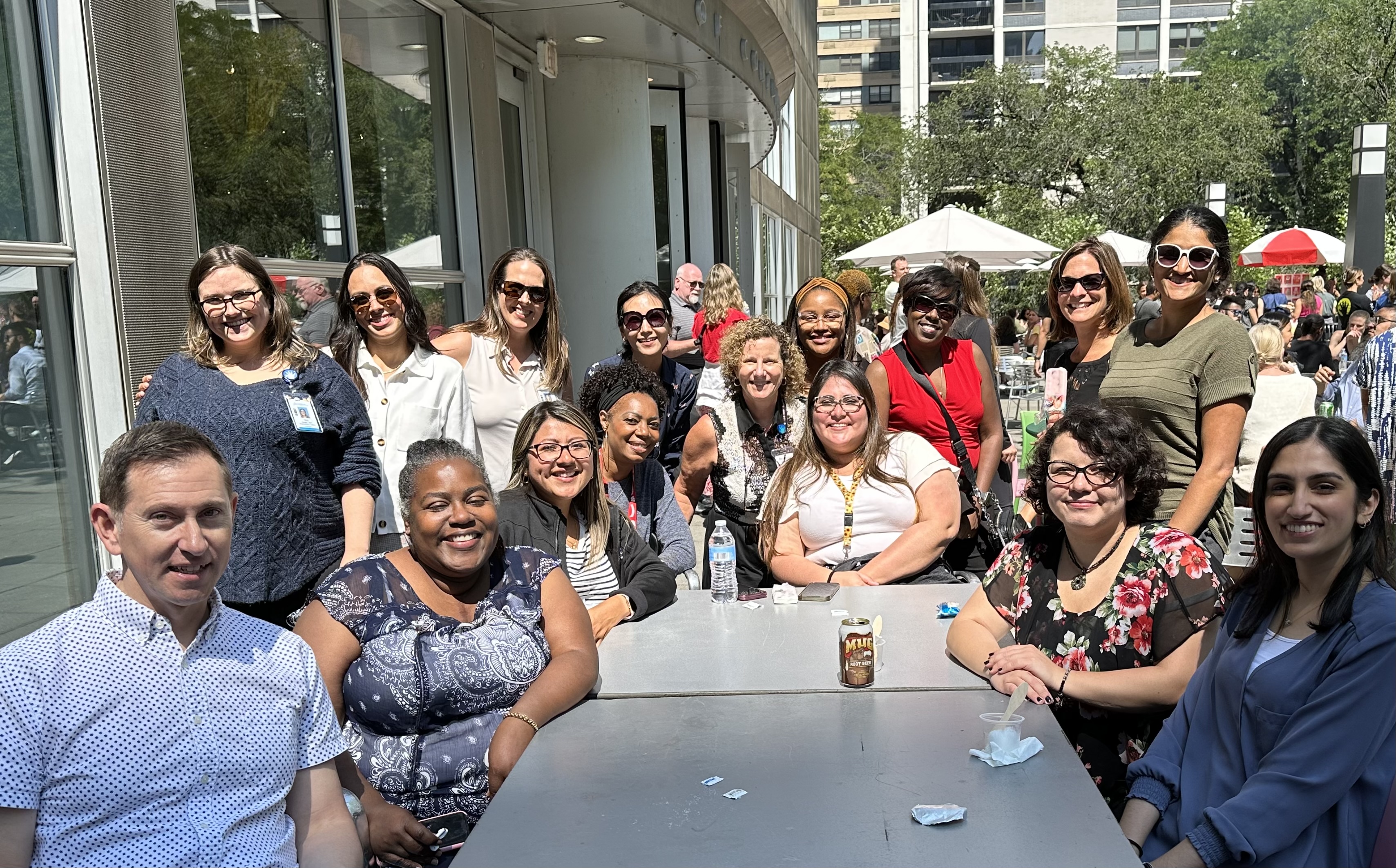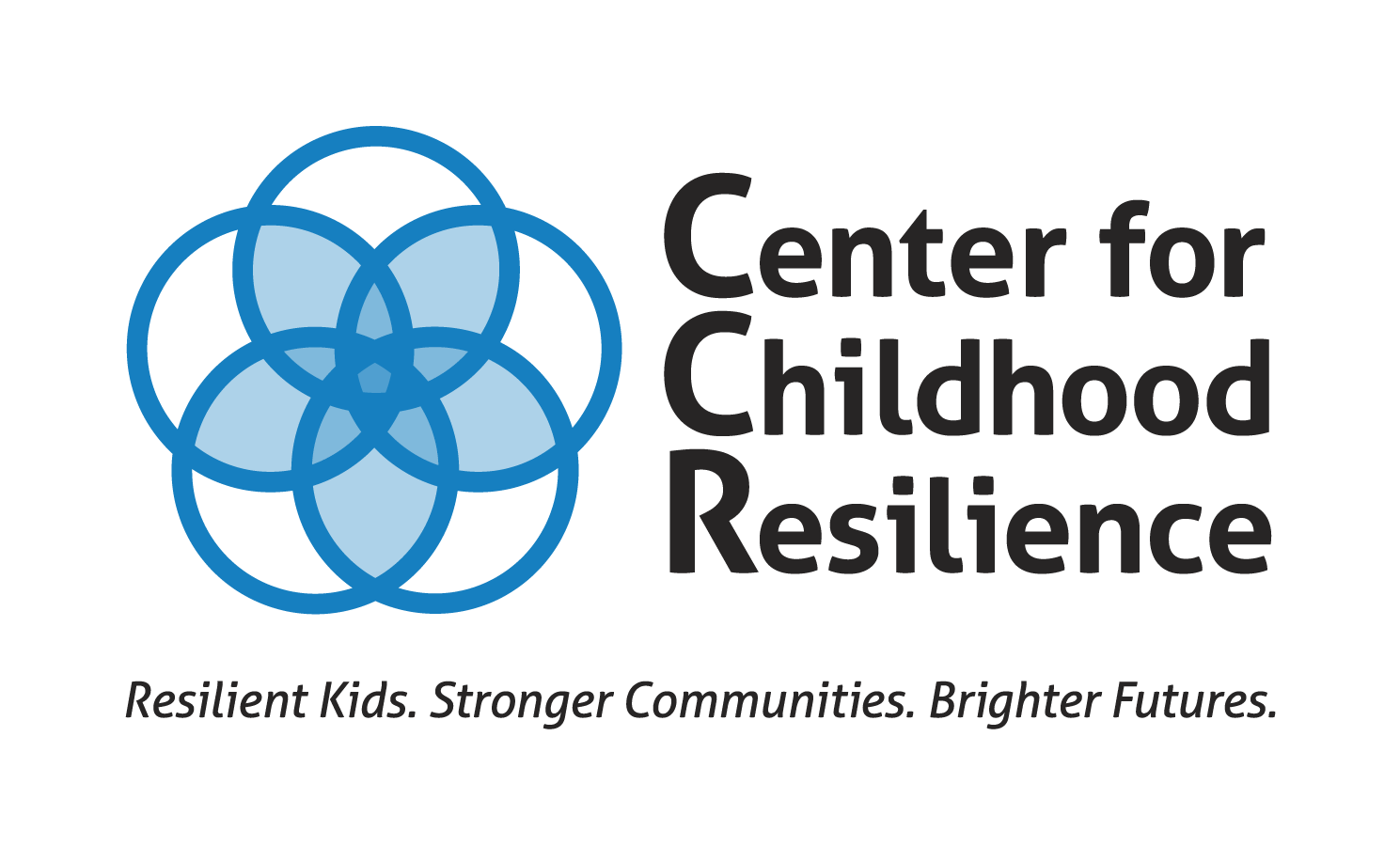2023 Year in Review
With Gratitude
For nearly 20 years, the Center for Childhood Resilience (CCR) has worked in the communities where kids live, learn and play to support their social and emotional well-being through evidence-informed programs, school and civic advocacy, and other innovative, sustainable strategies. The generosity of our supporters has been critical to the impact we have made. You believe in the power of our work and for that we are grateful.
CCR continues to expand its services, adjusting to the specific needs of children, youth and communities. Your dedicated support has been instrumental in making this year's achievements possible, and we hope you feel a profound sense of pride in the lives we've touched together. Thank you for standing with us to support children’s mental health.
Equipping Adults to Support Young People's Mental Wellness
Each child, school and community is unique. CCR designs and helps implement customized strategies and trainings for educators, mental health professionals, administrators and district leaders to better equip them to recognize and respond to mental health challenges and promote well-being and resilience. CCR trains adults in early childhood environments, K-12 schools, community-based organizations and other child- and youth-serving organizations.
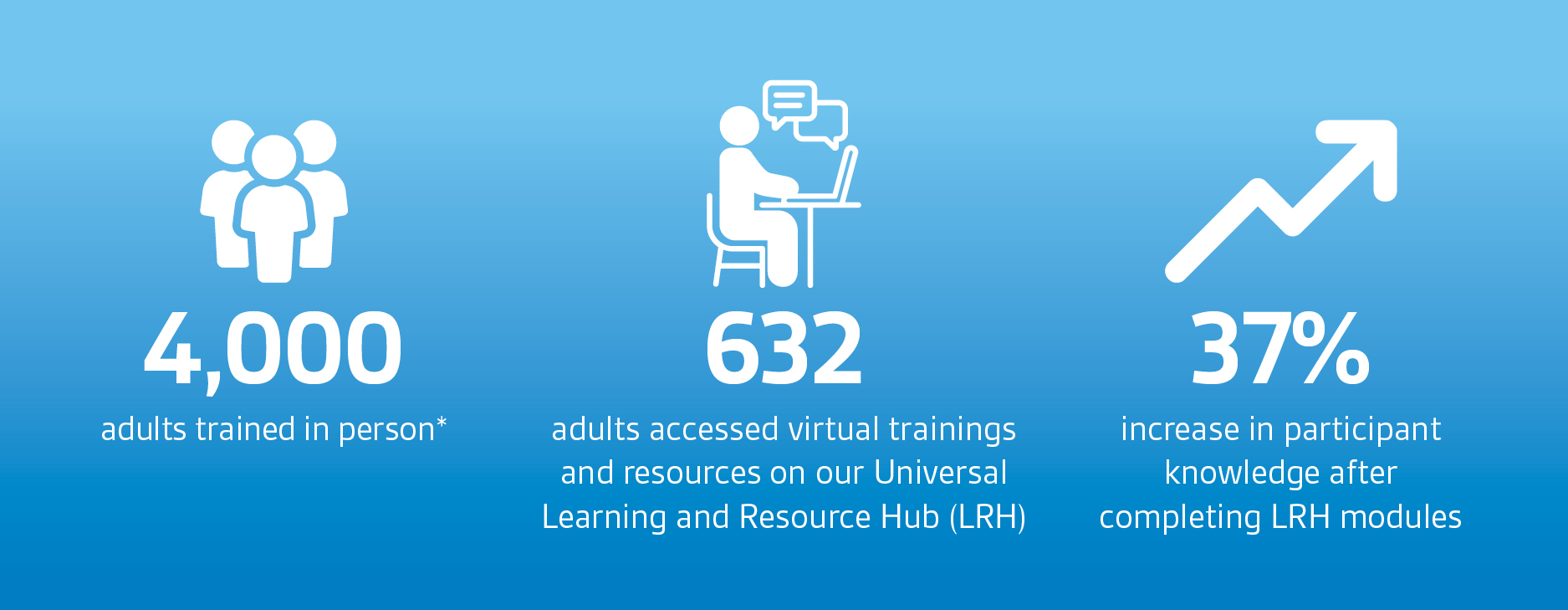
Creating a Healing-Centered Education System
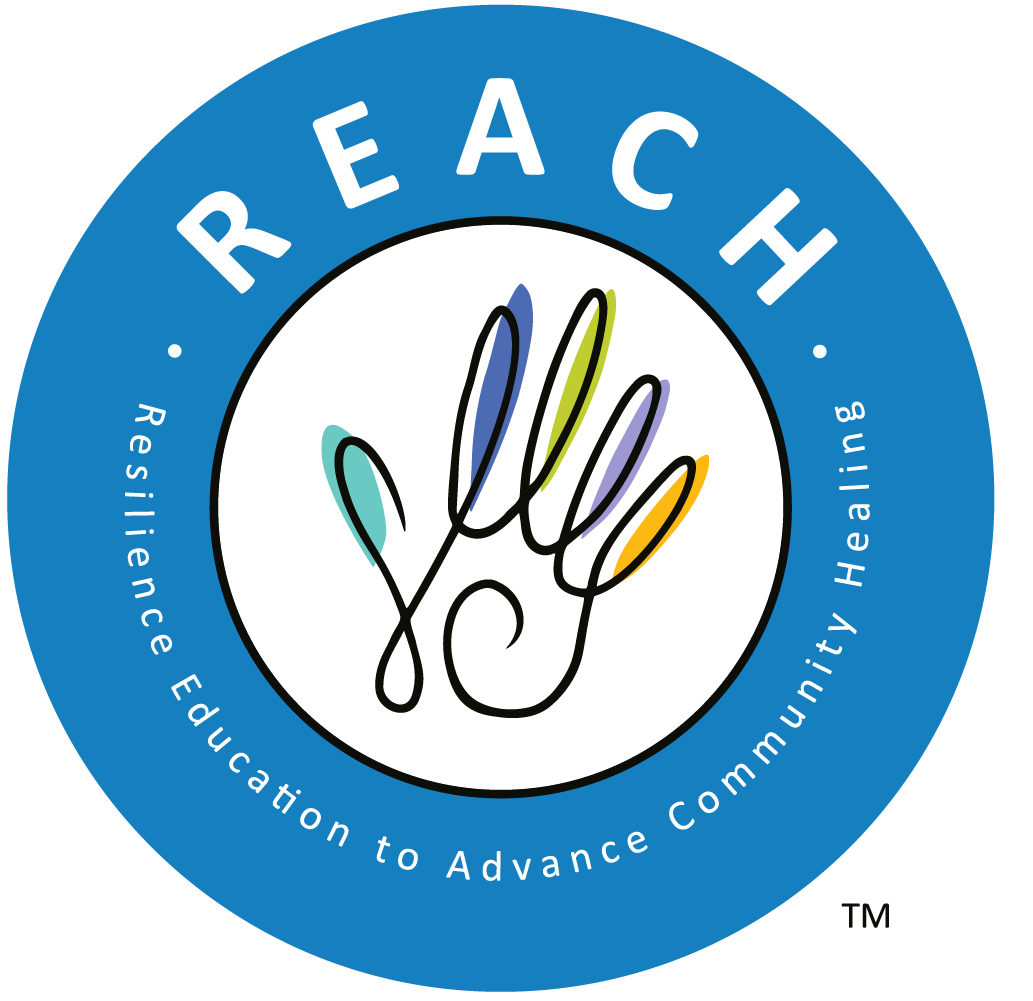
The Resilience Education to Advance Community Healing (REACH) Statewide Initiative, which supports Illinois’ school districts in creating healthy learning environments, is impacting thousands of students across Illinois.
CCR’s expanded REACH Learning and Resource Hub provides free, virtual on-demand learning and education resources. Recent offerings include modules that focus on supporting newcomer youth, a series on advancing racial justice and educational equity and brief modules that provide quick strategy ideas for schools doing trauma-responsive work.
Mashana Smith, PhD, CCR's Associate Director, School Mental Health: Healing Centered Engagement, served as an expert panelist at the American Academy of Pediatrics and the National School Board of Education sponsored Building Bridges for Student Mental Health Convening, where she shared the impact of REACH with five state boards of education teams from across the country.
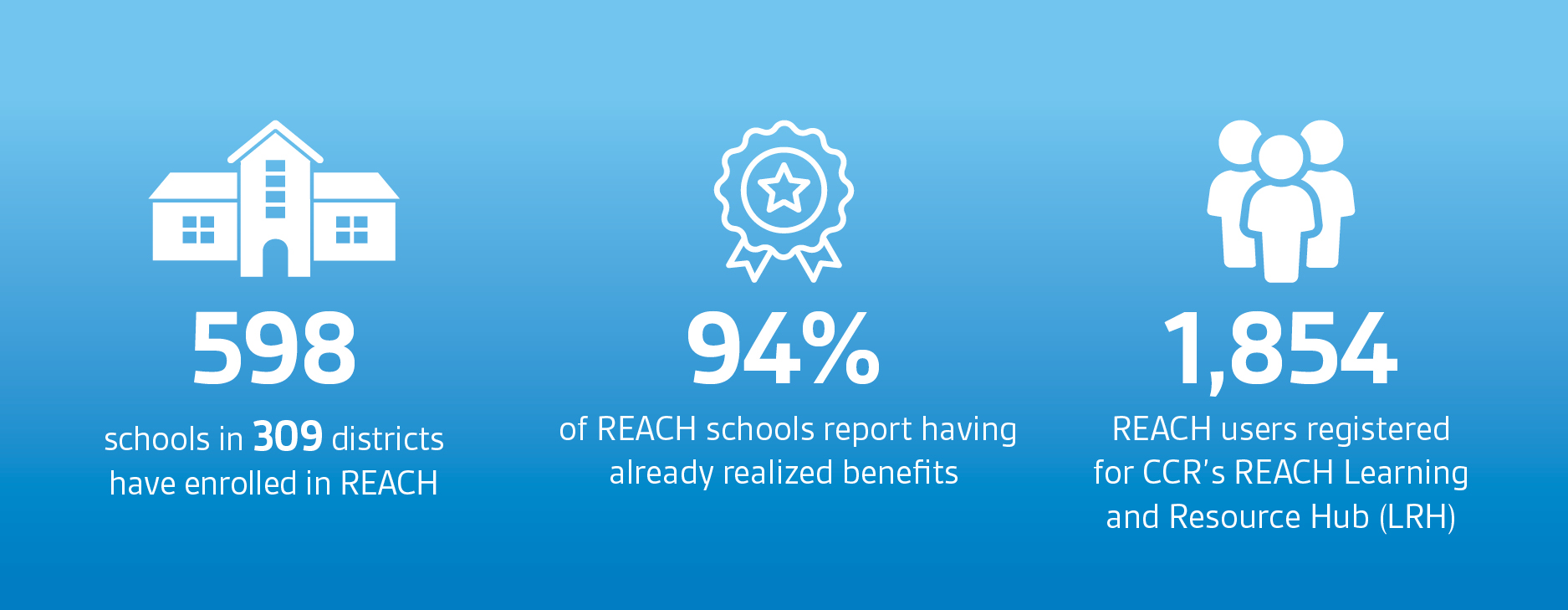
Meeting the Needs of Newcomers
Supporting Newcomer Students in Schools
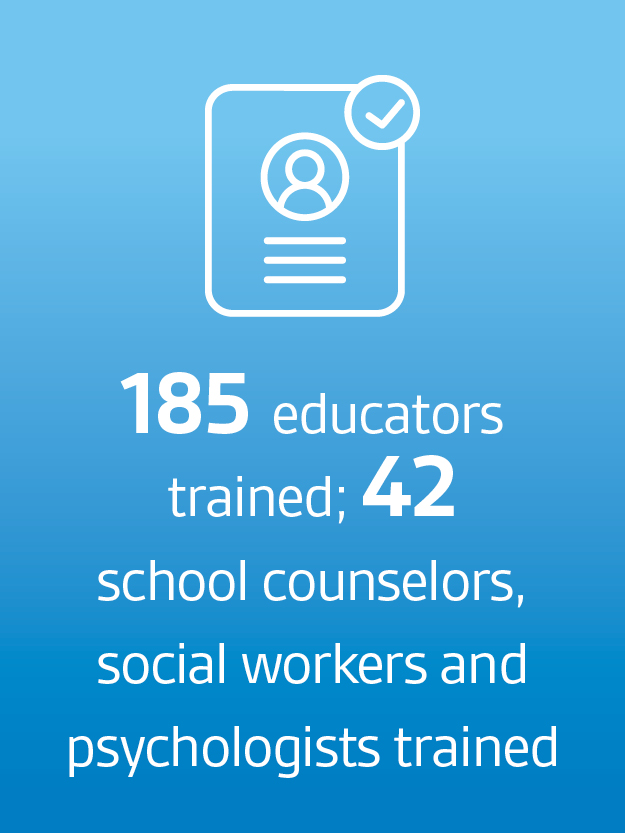 CCR partnered with CPS to expand support for newcomer youth mental health in schools through a group intervention, Strengthening Transition Resilience of Newcomer Groups (STRONG). The intervention aims to support these students as they process their journey to the United States and navigate their new country. This work will expand next school year to meet increasing need.
CCR partnered with CPS to expand support for newcomer youth mental health in schools through a group intervention, Strengthening Transition Resilience of Newcomer Groups (STRONG). The intervention aims to support these students as they process their journey to the United States and navigate their new country. This work will expand next school year to meet increasing need.
Engaging in Community Outreach
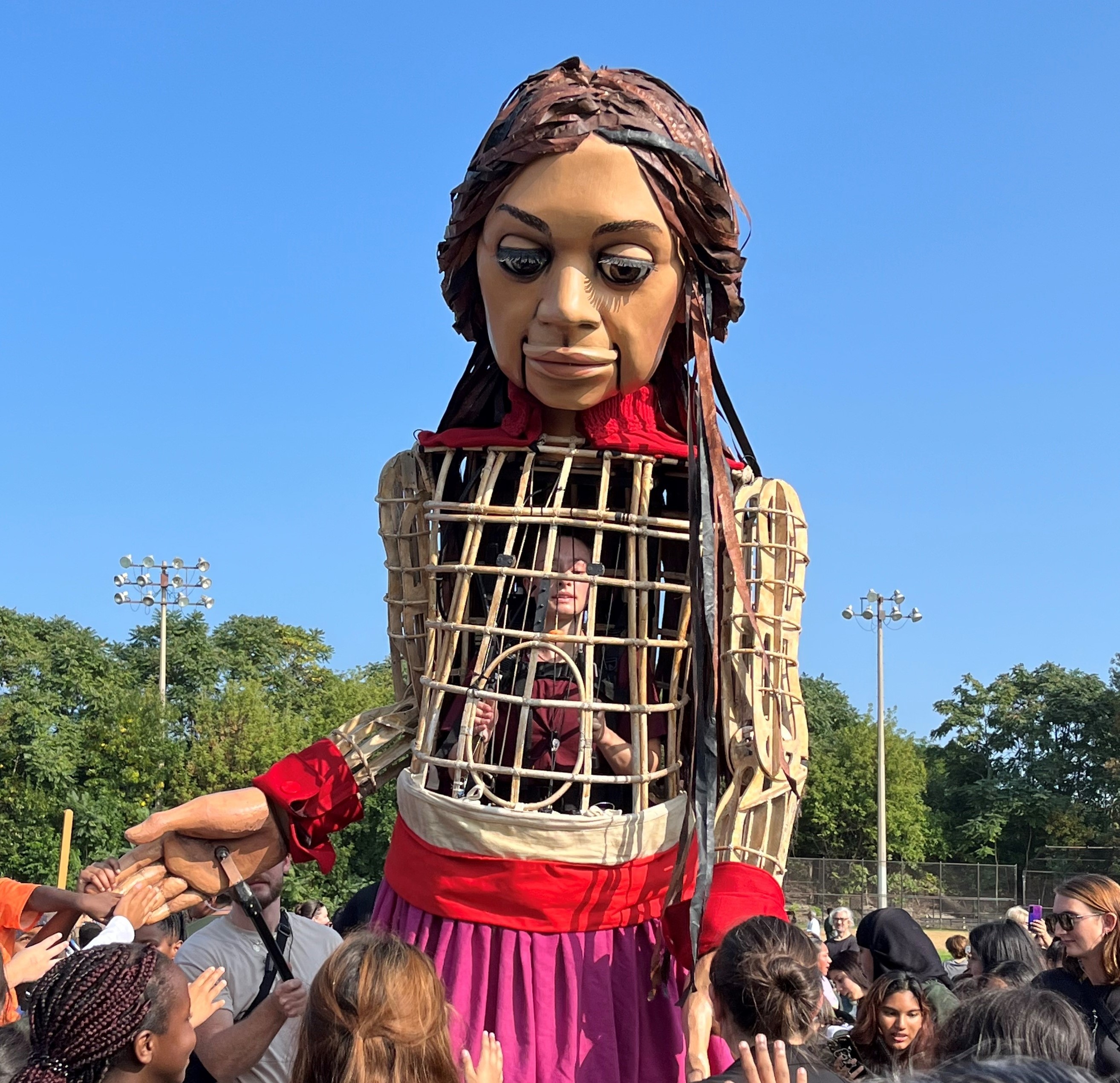
CCR served on the planning committee for Little Amal, a 12-foot puppet of a 10-year-old Syrian refugee child. Little Amal carries a message of hope for displaced people everywhere, especially children who have been separated from their families. CCR participated in Little Amal’s event at Jordan Community Elementary School in Chicago, where CCR provides its STRONG program.
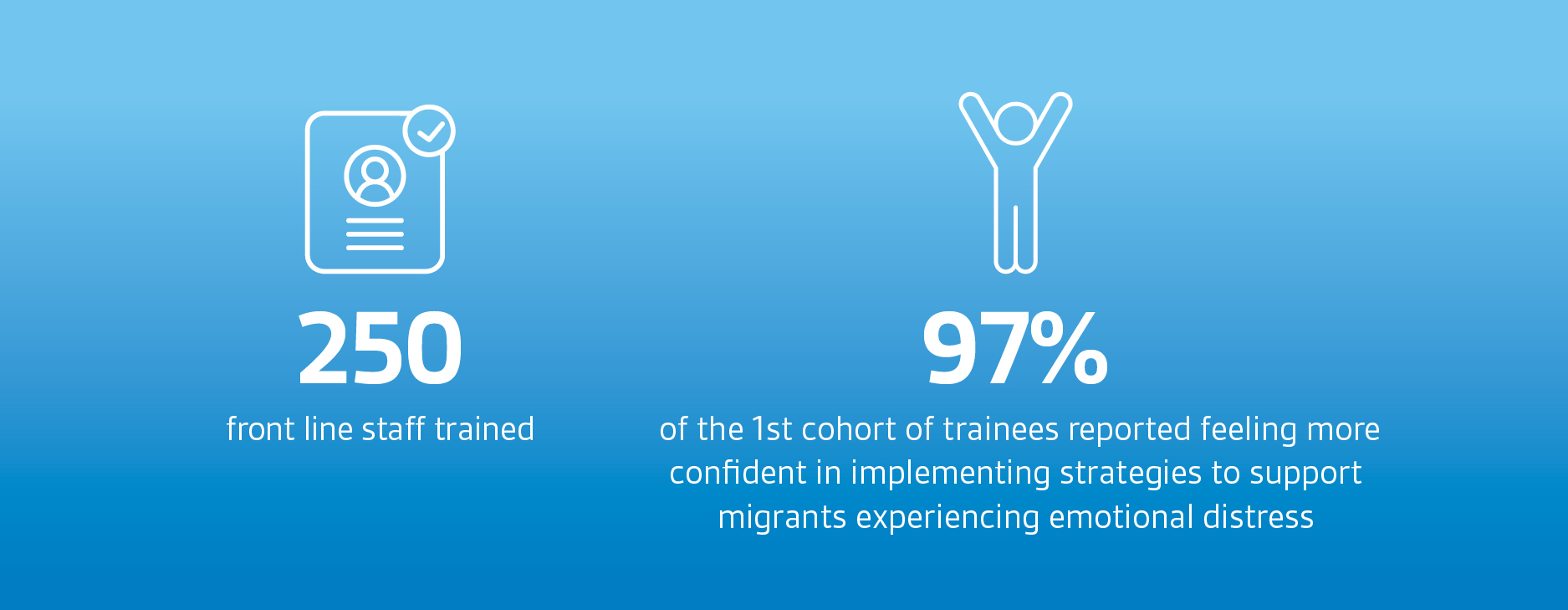
Supporting Early Relational Health
Embedding universal trauma-informed supports in early childhood settings has the potential to mitigate the negative consequences of early exposure to potentially traumatic events. Led by Director, Early Childhood and Community Engagement Carmen Holley, LCSW, CCR continues to adapt, test and expand our Ready to Learn Through Relationships Program (RLR-Program), a trauma-informed, developmentally attuned program for use in preschool settings. We are completing a diversity, equity and inclusion audit to ensure our materials are infused with a racial equity lens and anti-racism focus. We are adding an early childhood online portal on the CCR Learning and Resource Hub to further increase access to the program. We are also training educators and early care leaders nationally. One virtual training was attended by more than 900 participants.
CCR is entering the fourth year of a five-year National Office of Head Start (OHS) funded effort to establish the National Center on Health, Behavioral Health and Safety (NCHBHS), one of five centers supporting children and families across the entire OHS network. We are providing training and technical assistance and are leading the “Innovations Project” in partnership with Georgetown University to promote effective trauma-informed care practices. In August 2023, Ms. Holley presented at the OHS national convening, which further elevated CCR's leadership in early care and early childhood.
Expanding Access to Mental Health Services for Chicago's Youth
CCR is proud to partner with Chicago Public Schools (CPS) and the Chicago Department of Public Health (CDPH) to increase student access to mental health services in school and in the community. We are working to break down barriers and identify innovative strategies to link more young people to care, including helping adults who care for them identify signs of mental health concerns and know about available city resources. In partnership with CPS and CDPH, we recently created a series of infographics to improve mental health awareness and ease the process of finding resources.
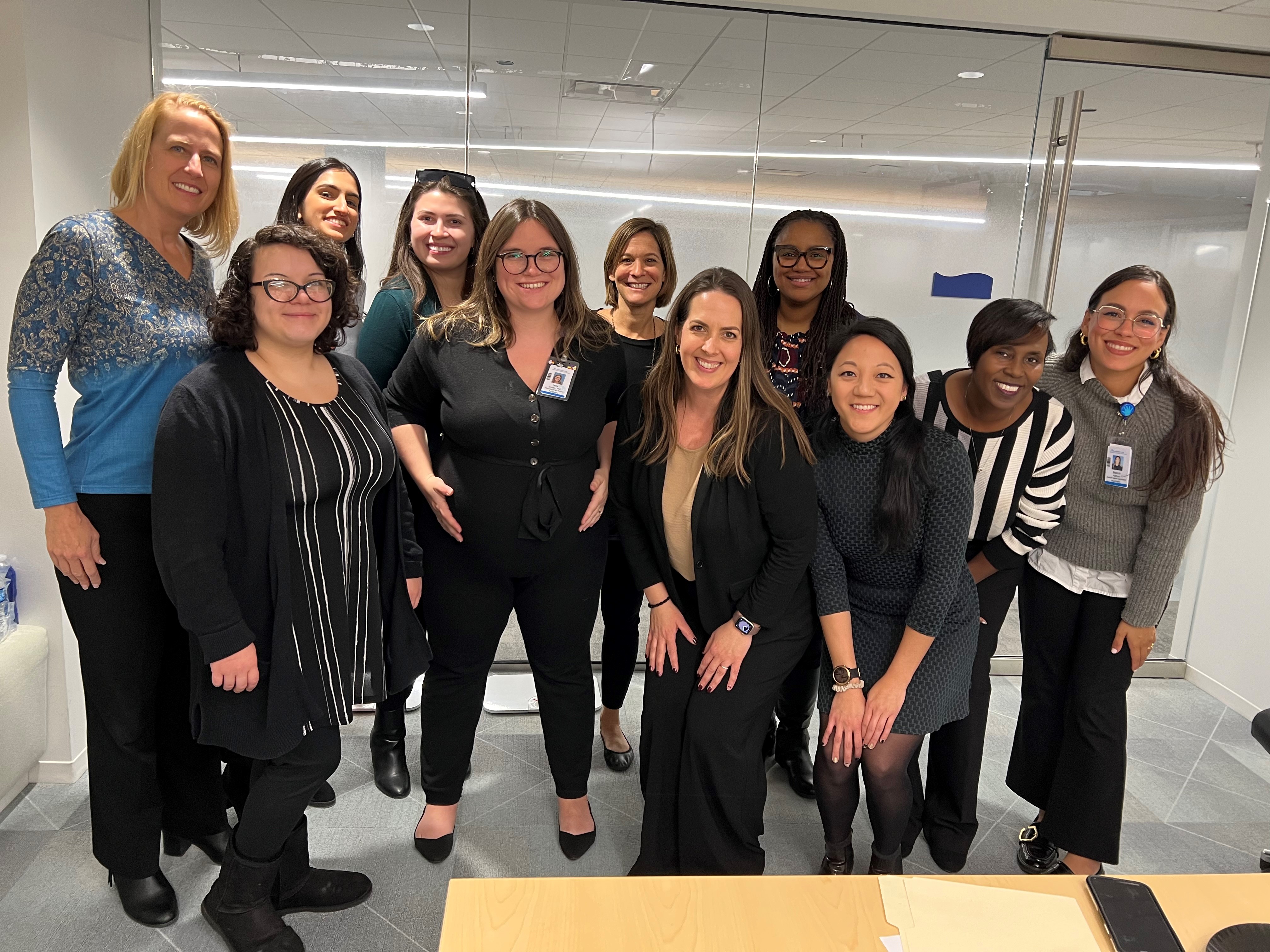 Our team, led by Sybil Baker, LCSW, Associate Director of School Mental Health: Interventions, continues to train mental health staff in Tier 2 group mental health interventions, including Bounce Back, Cognitive Behavioral Intervention for Trauma in Schools (CBITS), Anger Coping, Think First, Strengthening Transition Resilience of Newcomer Groups (STRONG), and Structured Psychotherapy for Adolescents Responding to Chronic Stress (SPARCS).
Our team, led by Sybil Baker, LCSW, Associate Director of School Mental Health: Interventions, continues to train mental health staff in Tier 2 group mental health interventions, including Bounce Back, Cognitive Behavioral Intervention for Trauma in Schools (CBITS), Anger Coping, Think First, Strengthening Transition Resilience of Newcomer Groups (STRONG), and Structured Psychotherapy for Adolescents Responding to Chronic Stress (SPARCS).
This school year alone, CCR has ensured that one-third of CPS schools now have mental health practitioners with evidence-based tools to support students displaying early signs of mental health concerns. One participating clinician commented, “This is one the best trainings I have ever attended in the past 20 years as an educator. Thank you for your enthusiasm, knowledge, authentic engagement and support!”
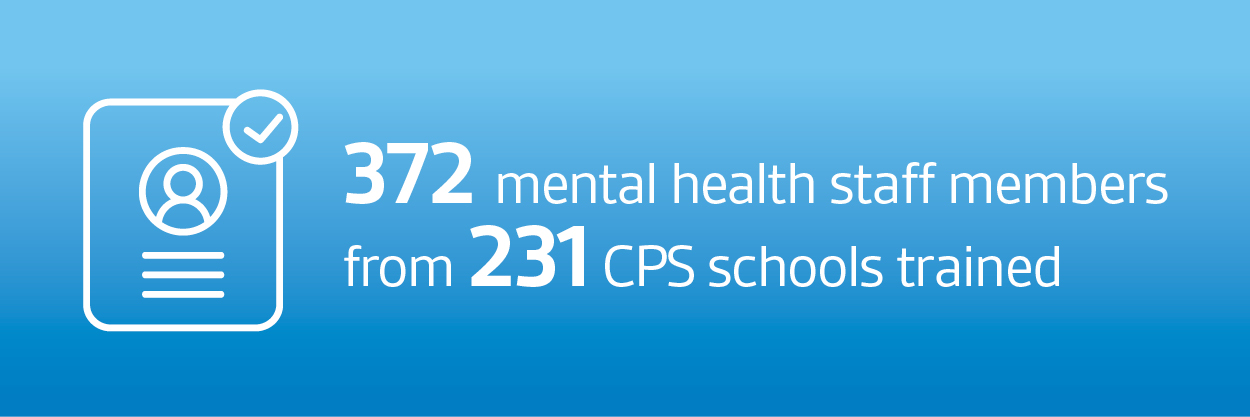
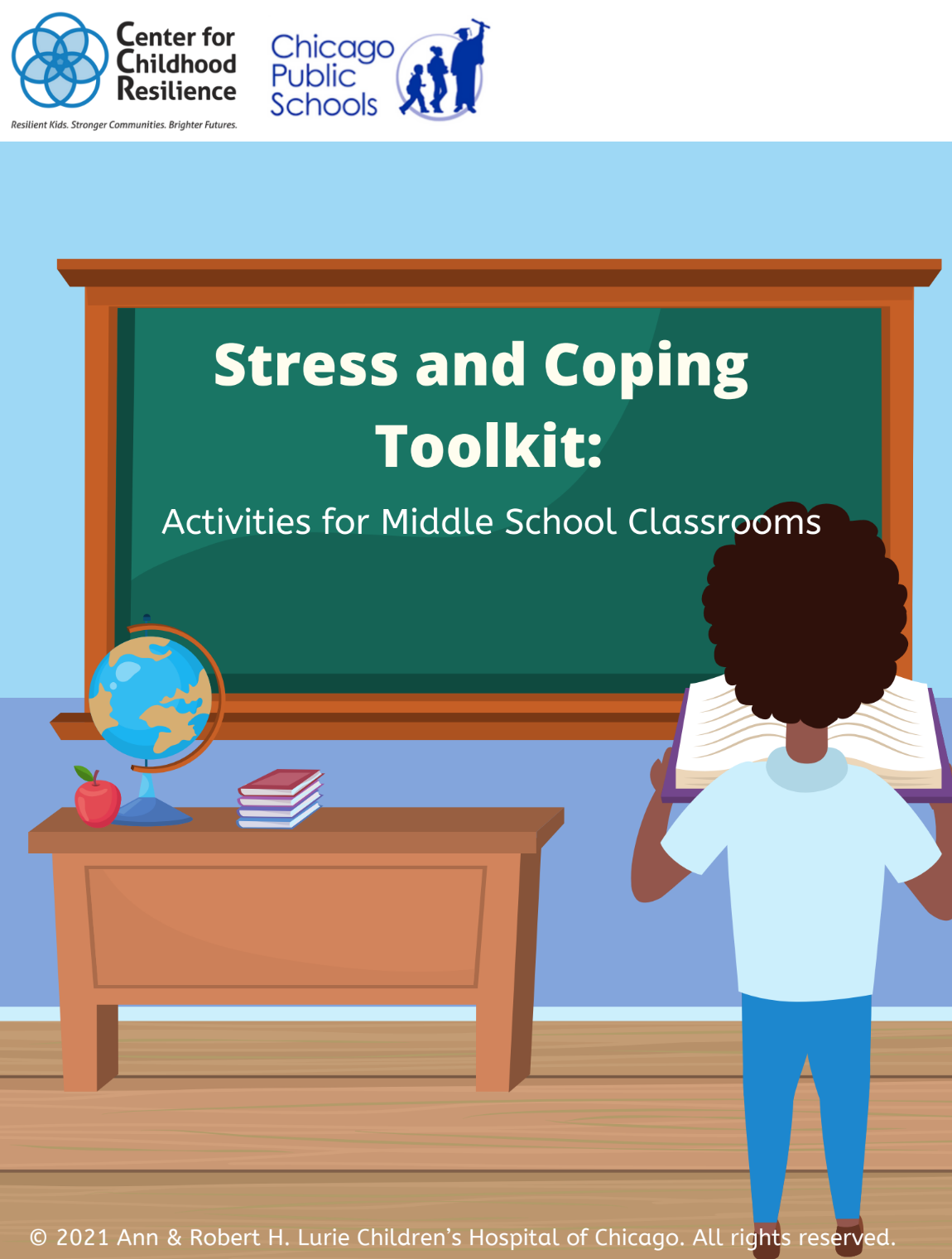
CCR’s Stress and Coping Toolkit helps build mental health awareness, reduce mental health stigma and promote positive coping for students in middle school classrooms. To date, almost 100 teachers from 30 schools have been trained to implement the Stress and Coping Toolkit. Results show that this program helps teachers recognize and respond to student mental health challenges. Next year, CCR will work with CPS to conduct a randomized control trial to investigate the impact of the toolkit on student mental health and well-being and their access to mental healthcare.
Sharing Our Expertise Across the Country
As we enter the fourth year of our SAMHSA-funded National Center for Safe Supportive Schools (NCS3) partnership, CCR and its partners welcomed 15 new school districts from across the nation to join our 2-year learning collaborative. School district staff learn about best practices in trauma-informed, culturally responsive school mental health systems.
Representing the NCS3, Director of School Mental Health Tali Raviv, PhD, presented on trauma-informed practices to students and future educators at the University of North Dakota College of Education and Human Development. The interactive presentation challenged how attendees understand and perceive trauma with the goal of highlighting to future educators the importance of recognizing and responding to trauma, as well as caring for their students and themselves.
Multiple members of our CCR team are being recognized as national and even international leaders as evidenced by increasing number of presentations, publications and leadership roles in scholarly pursuits. For example, Caryn Curry, LCSW, Director of Organizational Excellence, serves as a Co-Chair for the National Traumatic Stress Network Schools Collaborative. CCR team members have also presented at national and international conferences including the 23rd Annual Conference on Advancing School Mental Health, the International Society for Traumatic Stress Studies and more.
Building the Behavioral Health Workforce
Little attention, if any, has been dedicated to teaching about mental health and strategies to mitigate the negative impact of stressors in youth workforce development settings. CCR is dedicated to integrating mental health literacy into health education for youth. The Health and Emotional Awareness Lab (H.E.A.L.) program, led by Tara Gill, PhD, incorporates education and skills to reduce stigma around mental health challenges and promote well-being for youth participants who are building skills to pursue a career in the healthcare industry.

Advocating for Policy Change
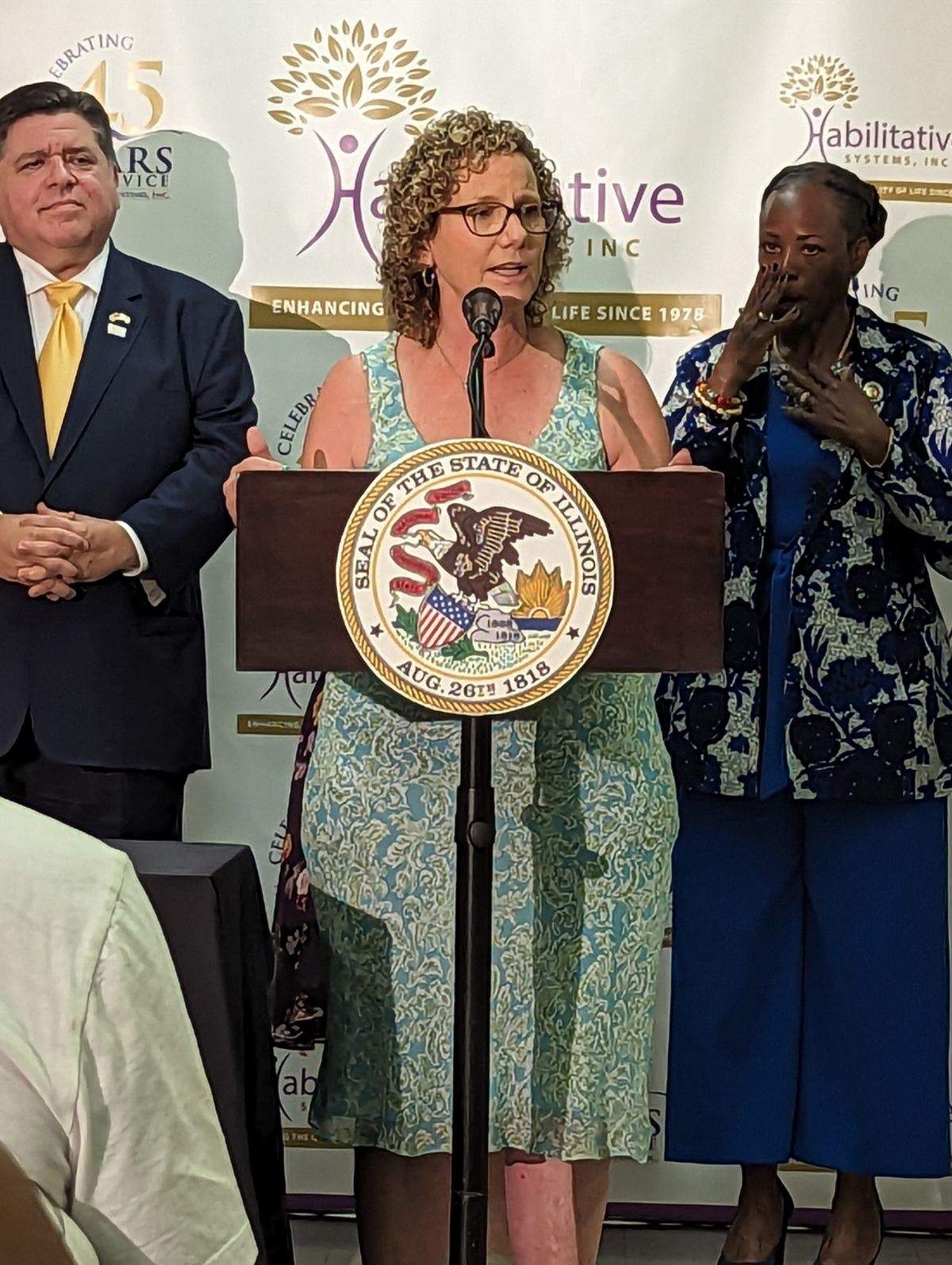 In August 2023, Governor Pritzker signed a bill into law that codifies the recommendations of the statewide Whole Child Task Force. Colleen Cicchetti, PhD, Executive Director, Tali Raviv, PhD, Director, School Mental Health, and Mashana Smith, PhD, Associate Director, School Mental Health: Healing Centered Engagement, served on the task force and helped to develop these recommendations. This bill lays out steps the state can take to create a safe, supportive and healing centered K-12 education system in Illinois. These include creating a Children’s Adversity Index, which would measure community childhood trauma exposure for children ages 3 to 18 and implementing training workshops for teachers to focus on trauma-responsive learning environments.
In August 2023, Governor Pritzker signed a bill into law that codifies the recommendations of the statewide Whole Child Task Force. Colleen Cicchetti, PhD, Executive Director, Tali Raviv, PhD, Director, School Mental Health, and Mashana Smith, PhD, Associate Director, School Mental Health: Healing Centered Engagement, served on the task force and helped to develop these recommendations. This bill lays out steps the state can take to create a safe, supportive and healing centered K-12 education system in Illinois. These include creating a Children’s Adversity Index, which would measure community childhood trauma exposure for children ages 3 to 18 and implementing training workshops for teachers to focus on trauma-responsive learning environments.
CCR is working with Illinois State Senator Mike Simmons, a staunch advocate for youth mental health. Together with our partners at Mikva Challenge, CCR staff supported the development and implementation of a statewide youth advisory board convened through the Illinois Children’s Mental Health Partnership to develop a set of recommendations for the state that will be shared with Senator Simmons to influence policy.
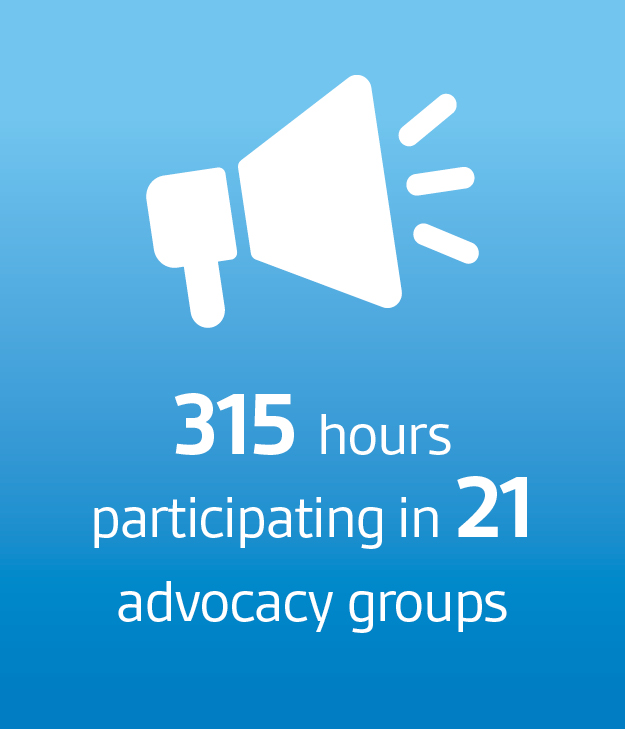
CCR participated in creating language and advocating for Senate Bill 646 which was signed into law by Governor Pritzker in August, launching the Healing Centered Illinois Task Force. The task force will advance the State's efforts to become trauma-informed and healing-centered through improved alignment of existing efforts, common definitions and metrics and strategic planning for long-term transformation.
Planning for Future Growth
CCR recently completed a strategic reorganization to guide our continued growth. CCR’s new leadership team has expanded in size, diversity and discipline. We are investing in strategies to strengthen our organization, steward resources, advance implementation and contribute to the field through innovation and research.
Leadership Team
Colleen Cicchetti, PhD, Executive Director
Sybil Baker, LCSW, Associate Director, School Mental Health: Interventions
Caryn Curry, LCSW, Director, Organizational Excellence
Carmen Holley, LCSW, Director, Early Childhood and Community Engagement
Nell McKitrick, MBA, Director of Operations
Tali Raviv, PhD, Director, School Mental Health
Mashana Smith, PhD, Associate Director, School Mental Health: Healing Centered Engagement
CCR in the News
Talking to Children about the Israel-Hamas War (ABC7 News)
The Youth Mental Health Crisis Needs Urgent Care. What Will It Take? (Crain’s Chicago Business)
When Students Are Not OK, Neither Are Teachers (Crain’s Chicago Business)
What’s Driving the US Teen Mental Health Crisis and How Adults Can Help (WBEZ)
Chicago Doctor Shares How to Help Children with Mental Health Challenges (CBS News2 Chicago)
